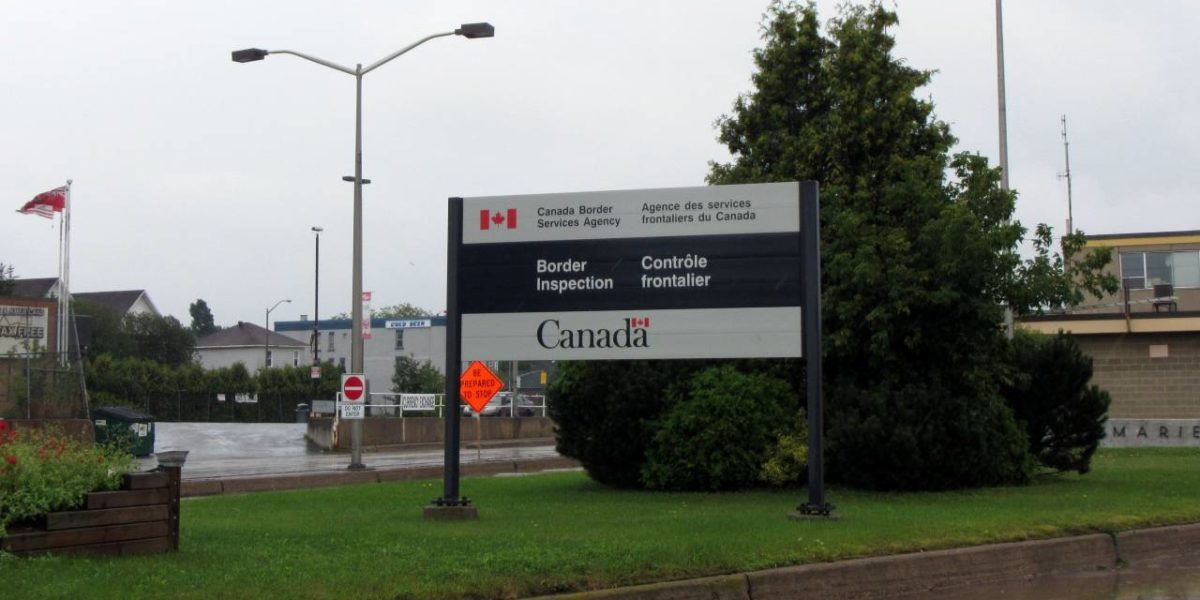Last month, Nova Scotia became the second Canadian province to end immigration detention in jails, following in the footsteps of British Columbia. Now, human rights advocates are calling on the federal government to do the same.
The province’s decision to terminate its immigration detention contract with the Canada Border Services Agency (CBSA) was confirmed on September 21 by advocacy organization Human Rights Watch, one year after the launch of their campaign for migrant and refugee rights, #WelcometoCanada.
The decision comes two months after B.C. became the first province in Canada to cut ties with the CBSA when it comes to immigrant detention.
While the percentage of migrant detainees held in provincial jails dropped from 43 per cent in 2014-2015 to 32 per cent by 2019-2020, the proportion of individuals in CBSA custody under immigration grounds increased during the COVID-19 pandemic to unprecedented levels.
A 2021 joint report from Human Rights Watch and Amnesty International noted that immigration detainees are often treated like people serving criminal sentences — by being “handcuffed, shackled, searched, subjected to solitary confinement, and restricted to small spaces with rigid routines and under constant surveillance, with severely limited access to the outside world.”
While immigration detainees are held in custody for non-criminal matters, they still endure what Human Rights Watch considers “some of the most restrictive conditions of confinement in the country.
For Samer Muscati, the associate disability rights director at Human Rights Watch, the decision marks a “momentous human rights victory that upholds the dignity and rights of people who come to Canada in search of safety or a better life.”
“With two provinces now canceling their immigration detention contracts within weeks, the federal government should show leadership by cancelling the remaining agreements, which are at the heart of so many rights violations,” Muscati said.
According to Human Rights Watch, the CBSA has spent the last five years incarcerating thousands of people on immigration grounds in dozens of provincial jails across Canada.
Incarcerating immigrant detainees comes at a cost
Because N.S. has no dedicated immigration holding centre, individuals who have not even been charged with a crime, are being held in provincial jails alongside convicted criminals.
Not only does the process of incarcerating immigrants jeopardize the health and safety of an already vulnerable population, it also costs taxpayer money to do so.
A Freedom of Information and Protection of Privacy Act request found that, as of April 2021, the federal government pays N.S. $392.30 per day for each individual detained under immigration grounds.
Sheila Wildeman, co-chair of the East Coast Prison Justice Society and associate law professor at Dalhousie University, is pleased to see N.S. cut ties with the CBSA, but she also believes the federal government should be using resources to invest in sustainable immigration settlement support in communities.
“As a result of Nova Scotia’s decision, immigration detainees will soon be spared the corrosive, human rights-impairing conditions of the province’s jails, where solitary confinement, mass lockdowns and other forms of routine institutional violence have only intensified since the start of the Covid-19 pandemic,” Wildeman said in a release.
The push for the federal government to sever ties with the CBSA
In July, B.C.’s Minister of Public Safety and Solicitor General Mike Farnworth announced the province would cut ties with the CBSA and end the practice of holding individuals detained under immigration grounds. Farnworth’s decision came after the commission of a 2021 review of B.C.’s contract with the CBSA that found holding immigrant detainees in jails called into question the provincial government’s commitments to upholding human rights standards, as well as pursuing social justice and equity.
According to Farnworth, B.C. Corrections would be providing the CBSA with 12 months written notice of the termination of their agreement, as required under their current contract.
The #WelcomeToCanada campaign launched in October 2021 in B.C., before expanding to N.S. and Q.C.
Not only do current practices violate the human rights of immigrant detainees, the CBSA is the only major law enforcement agency in the country without an independent civilian oversight.
In a 2015 report, the International Human Rights Program found that migrants with mental health issues were often subjected to prolonged periods of solitary confinement. Some were held in maximum-security jails for months, even years, despite never committing a crime.
The report, which profiled detainees imprisoned between two months and eight years, offered a devastating look into the way migrants are treated in CBSA custody.
“Overwhelmingly, the detainees communicated despair and anxiety over their immigration status, their seemingly indefinite detention, their lack of legal rights, their conditions of confinement, and the lack of adequate mental health treatment to allow them to get better,” the report reads. “Counsel are not given notice and detainees do not have an opportunity to challenge confinement in maximum security conditions despite the catastrophic impact imprisonment has on their mental health.”
“Across the Atlantic provinces and throughout the country, migrants and refugee claimants too frequently face abusive, open-ended immigration detention – especially traumatic for those fleeing war or persecution in search of a safe haven,” said Julie Chamagne, Executive Director of the Halifax Refugee Clinic, in a release.
Chamagne also called on the federal government to “enact robust legislative and regulatory changes to stop rights violations in this system across the country.”
Ketty Nivyabandi, the secretary general of Amnesty International Canada, agrees.
“We commend Nova Scotia for its decision to stop locking up refugee claimants and migrants in the province’s jails solely on immigration grounds,” Nivyabandi said in the same release. “There is now clear pressure to end this harmful practice across the country. We urge other provinces and the federal government to follow suit.”



